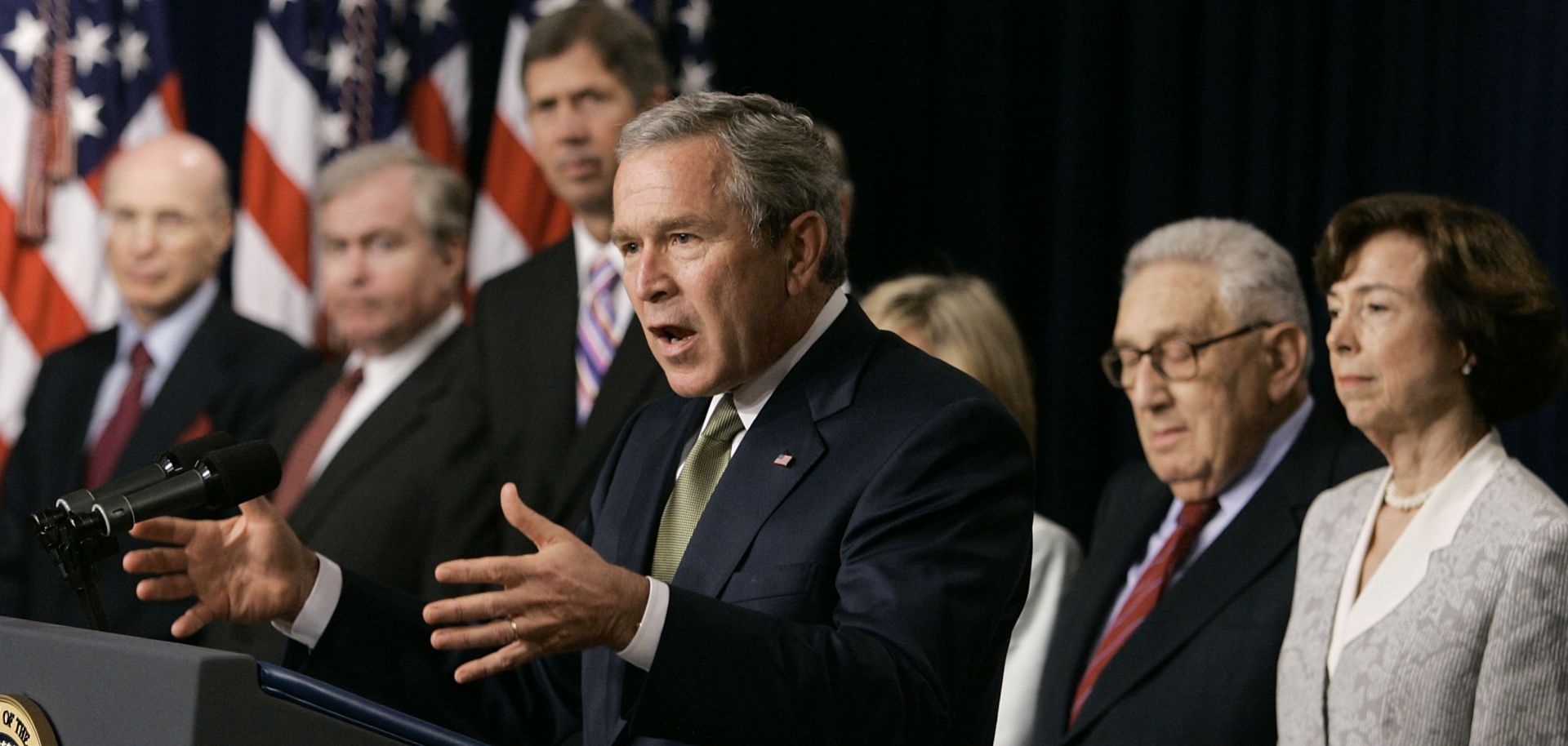ASSESSMENTS
Washington May Draw a Bull's-Eye on Central American Trade Pact
Feb 15, 2018 | 09:00 GMT

In this 2005 file photo, former U.S. President George W. Bush talks about the Central America-Dominican Republic Free Trade Agreement in Washington, joined by former Cabinet officials who supported the trade deal. The Trump administration could move to renegotiate the agreement by 2019.
(MARK WILSON/Getty Images)
Highlights
- U.S. trade negotiators could move to renegotiate aspects of the Central American-Dominican Republic Free Trade Agreement by 2019.
- The United States already has a trade surplus with the pact's member states, so any renegotiation will likely focus on making trade gains or amending aspects of the agreement's fine print.
- Because Honduras, Guatemala, and El Salvador figure prominently in the Trump administration's security concerns, any renegotiation may be accompanied by U.S. pressure to tighten law enforcement against illegal migration, drug trafficking and criminal gang activity.
Proceed to sign up
Register NowAlready have an account?
Sign In